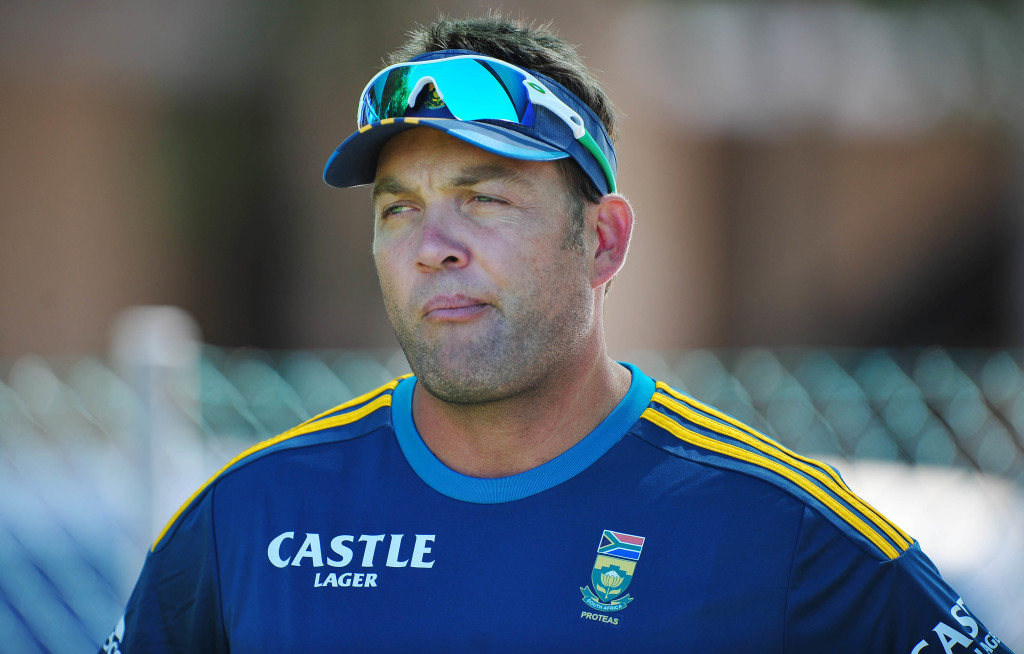The weight of South Africa’s reputation at World Cups will catch up with them when they reach the play-offs, says former Proteas great Jacques Kallis.
Kallis, writing for cricket.com.au, does not feel that the current group of players are free from the shackles of previous World Cup failures.
South Africa have never won a knockout game at a World Cup, something that the players are acutely aware of. It’s something that has followed the team around since 1996, when they lost in the quarter-finals to the West Indies. Taking the 1992 semi-final disappointment into account would be a bit harsh.
The tournament in 1999 was probably South Africa’s best chance, but the infamous run-out against Australia in the semi-final ended the prospects of a first final.
In 2003, on home soil, the Proteas failed to advance from the group stage after a disastrous miscalculation of the Duckworth/Lewis-method resulted in Shaun Pollock’s men crashing out against Sri Lanka.
2007 saw South Africa lose by seven wickets to Australia in the semi-final and 2011 was another big disappointment when a few crucial run-outs proved decisive in New Zealand reaching the semi’s.
‘South Africa are tarred with the same brush of failure from previous World Cups,’ writes Kallis.
‘The weight of the reputation catches up with you. You enter a World Cup with no baggage, nothing weighing you down, convinced that every game will feel the same as the last. The ‘reputation’ begins to catch up, however. It has nothing to do with many of the current squad. They arrived in Australia convinced that they were unscarred by what had happened before, only to discover that they are tarred with the same brush of failure that their predecessors felt.
‘In five World Cup campaigns we spoke about playing games as though they were ‘normal matches’, and the first few always felt that way. But the closer we got to the knockout games, the more different it felt.’
Kallis also brought up the chokers tag again which has haunted South Africa for years.
‘People love to say we ‘choked’, and I can’t be bothered to argue. But look at the highlights. It was a festival of choking on both sides.
‘2003 was perhaps the worst of all. We cried together after that,’ Kallis reveals.
South Africa, again entering the 2015 showpiece as one of the favourites, have already lost their two biggest pool games against India and Pakistan after they batted second in each match.
In many respects the Pakistan loss was more disappointing. South Africa had a smaller total to chase and the feeling was that a few of the batsmen threw away their wickets with poor shot selection without really ever being under pressure. The Proteas were never behind the asking rate against Pakistan, and yet players like JP Duminy, Rilee Rossouw and Dale Steyn tried to clear the boundary when it wasn’t necessary to do that.
‘When batsmen are caught on the boundary, hooking, with around four runs per over required, you know there’s a problem of some sort,’ said Kallis.
Former South African hero Herschelle Gibbs, writing exclusively for SACricketmag.com, made the same point in his column after the Pakistan defeat when he questioned the shot selection of certain batsmen.
‘Again, for me, JP Duminy showed a lack of temperament,’ Gibbs wrote after the Pakistan game.
‘It’s not a case of inexperience. He turns 31 next month, has played 137 ODIs and has scored four hundreds. Three have come against Zimbabwe and one against the Netherlands, but against a higher level of opposition he is not making the grade.
‘His dismissal in Auckland came as a result of a poor shot at a crucial time of the game – just like happened in the chase against India. It doesn’t make JP a bad batsman, but it’s a result of the pressure and the way the mind reacts to being put under pressure.
‘I can’t really blame Rilee Rossouw too much, although he was also out caught hooking. He is still relatively inexperienced, having only played 17 ODIs, so he’s still learning to play at international level. JP has played 120 more games than Rilee has.’







